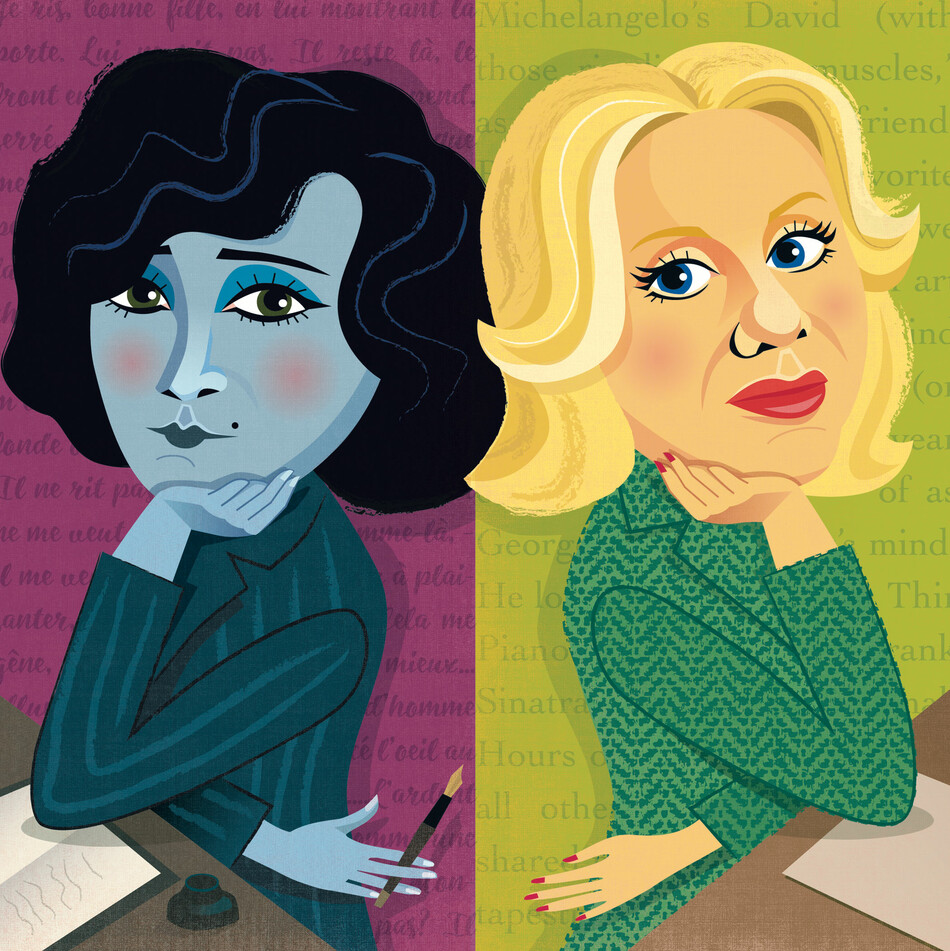On a recent evening in the Maison Française, Elisabeth Ladenson ’94GSAS, professor of French and comparative literature, introduced her fellow speaker, Erica Jong ’63BC, ’65GSAS, by declaring that she was so well known, and so prolific, that she had moved even Bob Dylan to poetry. From the middle of Dylan’s song “Highlands”:
Then she says, “You don’t read women authors, do you?”
Least that’s what I think I hear her say
“Well,” I say, “how would you know and what would it matter anyway?”
“Well,” she says, “you just don’t seem like
you do!”
I said, “You’re way wrong”
She says, “Which ones have you read then?”
I say, “I read Erica Jong!”
Erica Jong: the author men once read so they could understand what women want — in and out of the bedroom. Jong’s first novel, Fear of Flying, introduced the catch phrase “the zipless fuck” — a casual sexual encounter — and she still has a reputation as a writer people reach for only to get to the bedroom parts. But there’s a lot more to Jong than her empowered sexuality and her status as what she calls the “happy hooker” of literature, a reference to Penthouse columnist Xaviera Hollander’s 1971 memoir about her time as a New York call girl. In fact, Jong’s twenty-five books include seven volumes of poetry and a biography of her late friend and biggest fan, the novelist Henry Miller, called The Devil at Large.
This pervasive underestimation of Jong’s output connects her to the French novelist Colette — the writer Jong and Ladenson had come to discuss. Colette was the original female sex writer, deeply invested in maintaining a controversial reputation: she once declared that feminists should be given “the lash and the harem.” Born in the village of Saint-Sauveur-en-Puisaye in 1873, Colette seemed to live a life of sexual liberty and agency. She divorced two husbands, danced in her skivvies onstage, and had an infamous affair with her teenage stepson when she was in her late forties.
Colette’s famous Claudine novels follow the protagonist as she comes of age emotionally and sexually. Though this series catapulted Colette to fame, its birth was not untroubled. The series was originally published under the name of her husband, Henry Gauthier-Villars, known by the nom de plume “Willy.” For thirteen years, Gauthier-Villars locked his wife up daily until she turned out material for him to send to his editor. Finally, Colette divorced him.
While Jong and Ladenson were grateful for the existence of Colette’s early works, they lamented that the books were only accepted for publication under her husband’s name. For Colette to be taken seriously when she wrote about sex from a female point of view, the reader had to believe she was a man.
When Fear of Flying came out in 1973, Jong was still one of few women writing about her own sexual desire. Reactions to the book — and to Jong herself — were varied. “Men hit on me, and women came over to my apartment wanting to talk,” she said.
To further complicate matters, as Ladenson noted, writers like Henry Miller and John Updike — neither of them considered apostles of feminism — praised Jong’s candor and prose style. Miller hailed Jong’s “wisdom about the eternal man-woman problem,” and wrote the author a fan letter. The two became friends, often meeting for dinner on the West Coast.
As writers, Jong and Colette were equally productive. Colette went on to publish over twenty novels under her own name, including Chéri, about a relationship between a younger man and an older woman, and Gigi, whose Broadway adaptation would make a star of Audrey Hepburn. Jong’s favorite is La Vagabonde, the story of a traveling dance-hall performer. “There’s a lusciousness of femaleness in Colette’s writing,” Jong said. “Virginia Woolf killed herself, Sylvia Plath stuck her head in the oven, but Colette embodied her life.”
After the talk, an audience member mentioned that Jong had once written a poem for Colette entitled “Dear Colette.” Jong then read the whole poem aloud, though one need only hear the first stanza to understand the relationship between the two writers:
Dear Colette,
I want to write to you about being a woman for that is what you write to me.



